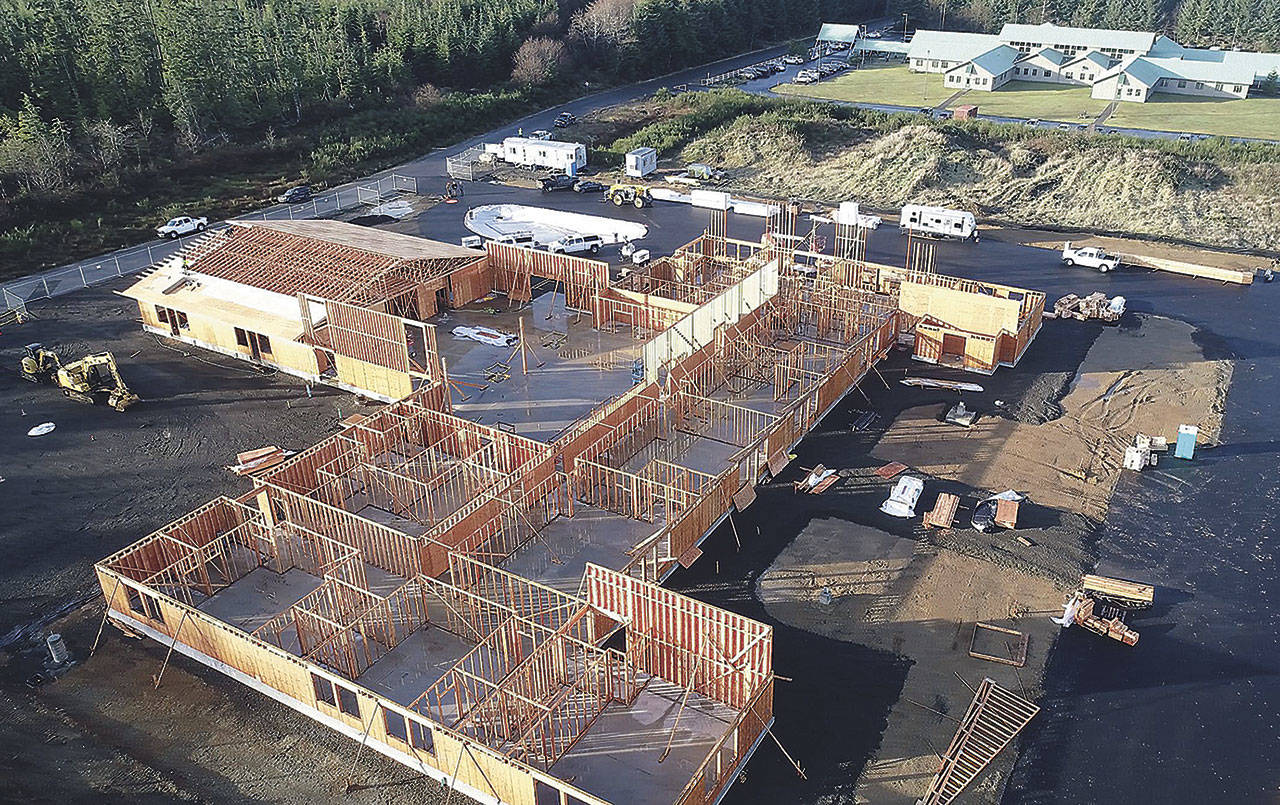A package of bipartisan bills approved by the U.S. House of Representatives on Tuesday includes legislation introduced by Rep. Derek Kilmer, D-Gig Harbor, that would provide dedicated resources to Native American tribes in coastal areas to support their efforts to mitigate threats the lawmaker says are caused by climate change and sea level rise.
Kilmer’s legislation, the Tribal Coastal Resiliency Act, would “provide tribal communities with direct access to much needed resources to enhance their coastal resiliency and keep their people out of harm’s way,” said Kilmer.
H.R. 729 creates programs to support projects that protect, restore, and preserve coastal zones and working waterfronts; helps communities prepare for and respond to the impacts of climate change; and improves data collection and monitoring to strengthen coastal, ocean, and Great Lakes management.
“Climate change is real and it requires bold action,” said Kilmer. “Our region has seen severe storms and rising sea levels threaten communities. We’ve seen homes and community centers in Taholah face water damage. We’ve seen the Quileute Tribal School in La Push in the crosshairs of a rising ocean. We’ve seen coastal challenges threaten public safety, public access, and cultural landmarks for these tribes and others, including the Hoh and Makah tribes.”
Fawn Sharp, Quinault Indian Nation President, said, “This bill will make available to tribes grant funding for the protection and preservation of tribal coastal zones and areas. This funding will be very helpful to every tribe that is dealing with rising sea level, and coastal and shoreline degradation and destabilization due to climate change. I urge the Senate to immediately pass this important legislation.”
“Coastal treaty tribes are on the front lines of climate change. They face severe storms, sea-level rise, flooding, loss of traditional resources and more,” said Mike Stevens, Washington State Director of The Nature Conservancy. “Rep. Kilmer’s Tribal Coastal Resiliency Act is an important step forward to help tribal nations confront these challenges.”
Among the key provisions included in the H.R. 729:
Supporting resilient coasts
The Tribal Coastal Resiliency Act would modernize the National Oceanic and Atmospheric Administration’s Coastal Zone Management Grant Program to create a dedicated set-aside for tribal communities to secure grant funding for projects that will protect their people and landmarks from changing landscapes and weather events.
Tribes such as the Quileute Nation village of La Push, the Hoh Tribe, the Makah Tribe, and the Quinault Indian Nation have begun the process of moving assets and people to higher ground. This dedicated funding is critical to supporting these efforts, said Kilmer.
The bill recognizes tribal sovereignty by amending the Coastal Zone Management Act to allow tribal governments to directly compete for Coastal Zone Management Grants, instead of requiring them to petition states to prioritize their projects. Kilmer said this parity is essential given the severe challenges tribal governments face in implementing coastal and shoreline measures that support public safety, public access, and cultural and historic preservation.
The legislation co-sponsored by Kilmer establishes a grant program to fund the design, implementation, and monitoring of climate resilient shoreline projects intended to protect coastal communities and ecosystem functions from environmental conditions, particularly those impacted by climate change. Eligible projects include the removal of shoreline armoring and restoration of nearshore habitat for juvenile salmon.
Working waterfronts
The package also includes a bipartisan bill Kilmer co-sponsored to establish a working waterfront grant program to protect and enhance coastal access for marine-dependent commercial activities. Working waterfronts – which include waterfront property, infrastructure, and waterways that provide access to coastal waters for people in commercial and recreational fishing businesses, boatbuilding, aquaculture, or other water-dependent activities – are essential for supporting coastal economies. This program would create a new federal incentive to help local communities like Westport and Port Angeles make strategic investments to support their working waterfronts.
Supporting the National Sea Grant College Program
The package includes a bipartisan bill co-sponsored by Kilmer to reauthorize and update the National Sea Grant College Program. Sea Grant sends nearly 95 percent of its appropriated funds to coastal states for competitive grants that enhance the practical use and conservation of coastal, marine, and Great Lakes resources. For every federal dollar appropriated, Sea Grant leverages nearly $3 from partnerships among state universities, state and local governments, and coastal communities and businesses.


